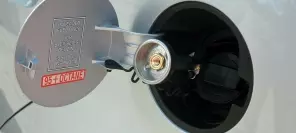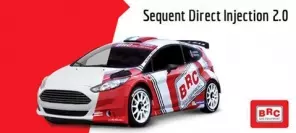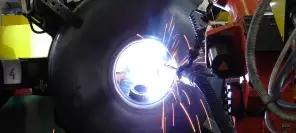- Main page
- Search
- Up to date
- Products
- Technology
- Vehicles
- Video
- Conversion Payback Simulator
Port Injection - Conversion Payback Simulator
Direct Injection - Conversion Payback Simulator
Diesel - Newsletter
Choosing the car
 loading results...
loading results...
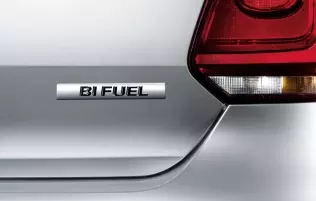 © VolkswagenMost cars will not mind wearing a badge like this one, yet there are some that will, so be careful
© VolkswagenMost cars will not mind wearing a badge like this one, yet there are some that will, so be carefulFine, so you need a new car. Well, it does not actually need to be brand new and fresh from the dealership (although in most countries there is a variety of factory-converted models to choose from), but essentially you want to replace your ride with another one, most probably a roomier, safer, more comfortable and, after all, a newer one. At the same time, you know you want to slash your fuel bill by having your next set of wheels converted to run on autogas, which is both cheaper and not as hard on the environment as petrol. The thing is, your personal taste in cars may not coincide with the car's taste in fuels, so make sure you choose a model that does not mind running on LPG. This may involve certain compromise, but is it not what life is all about?
Let us put one crucial matter straight: whether you go for a petrol-sipping city car or a gargantuan fuel guzzler (a big van, a fashionable crossover or an SUV) is your decision. All depends on what you need or want. What we know is that every car, regardless of its size or engine capacity, saves the same percentage of fuel costs, which is around 40%. It is much more important to make sure the car of your choice is typical, i. e. to see if conversion and maintenance are easy to conduct or if the engine's valve's and valve seats are not oversensitive to LPG's characteristics (higher combustion temperature, lack of lubrication from the fuel).
Lead compounds added to petrol in the old days had two roles to play. First of all, they were supposed to boost octane rating and prevent knocking (uncontrolled ignition). Secondly (which was a useful side effect rather than intended result), they appeared to be protecting valve seats from recession by forming a protective layer on both valves and seats. With the advent of unleaded petrol, lead compounds were replaced with substitutes based on potassium, sodium, phosphorus or magnesium. At the same time, engines began to be built more „cost-effectively”, which means their longevity is not what it used to be and once you switch to autogas and cut off the supply of lubricating additives, valve seats may sometimes recess prematurely (although knocking is still prevented due to LPG's naturally high octane rating, normally in excess of 100). Valve saver fluids, originally designed as lead substitutes for older petrol engines, usually solve the issue, which is considered typical of Fords and most of the Korean and Japanese cars: Hyundais, Kias, Nissans, Toyotas, Hondas, sometimes also Mazdas.
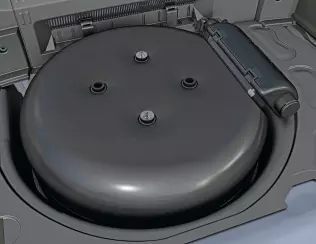 © VolkswagenPlacing the LPG tank is also an issue, so make sure you choose a car with plenty of space
© VolkswagenPlacing the LPG tank is also an issue, so make sure you choose a car with plenty of spaceAnd speaking of Mazda, engine durability may sometimes be secondary to another issue. Namely, certain technical solutions applied by engineers may cause the motor to malfunction when converted to run on gaseous fuel. There are few engines nowadays that fail to operate as well on LPG as on petrol, but there is something else: the advent of direct-injected motors. Yes, there are autogas systems available for them, but they are either costly (direct liquid state LPG injection systems using original injectors and high-pressure fuel pumps) or inject LPG into the manifold and still use some petrol to cool the petrol injectors located inside combustion chambers. Engineers of the autogas sector are working towards injecting LPG directly through petrol injectors, with no need to use 10-20% of petrol all the time, but before this technology becomes commonplace, conversions of direct-injected engines will probably not enter the mainstream.
All the above may seem like a lot of fuss and going out of one's way a great deal. In reality, finding the right car is quite easy. All mainstream brands of the Volkswagen Group (Volkswagen, Audi, Skoda and Seat) are easy to convert (given they have MPI, not FSI/TSI/TFSI engines), so are Opels, Chevrolets (GM brands in general), Fiats, Chryslers, Dacias, Mitsubishis, Subarus, Renaults, Citroëns, and Peugeots, while many more are fine if you use a valve saver kit. When in doubt, ask your local installer – these guys have huge experience and know which engines enjoy being fed with autogas. If you value saving on fuel more than the freedom of unlimited choice, you will find a model to suit your needs in no time!
